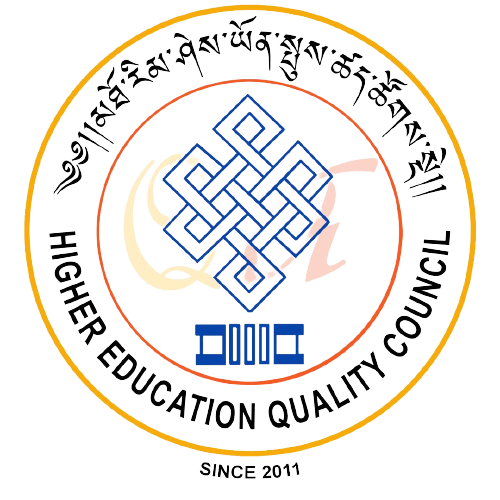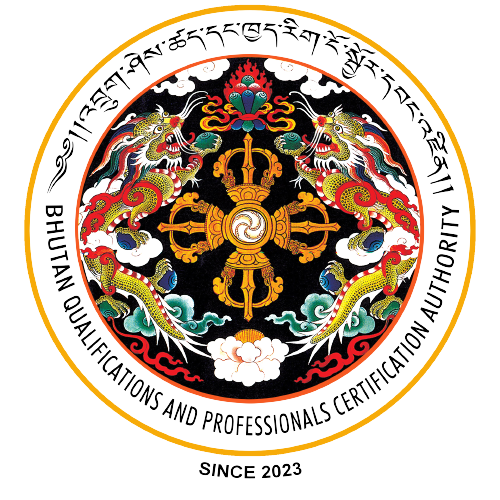Prior to 2023, the Council functioned as the Quality Assurance and Accreditation Division (QAAD), under the Department of Adult and Higher Education, Ministry of Education. QAAD served as the Secretariat to the Bhutan Accreditation Council, which was the national autonomous body for accreditation, quality assurance and recognition of qualifications.
With the establishment of Bhutan Qualifications and Professionals Certification Authority (BQPCA) on 9 January 2023 as per Section 25 of the Civil Service Reform Act 2022, QAAD was subsumed as one of the councils, namely the Higher Education Quality Council (HEQC). The Council has the mandate to ensure provision for pursuit of quality higher education both within Bhutan and abroad with systemic mechanisms in place. Based on the Tertiary Education Policy of the Kingdom of Bhutan 2010, all Higher Education Institutions (HEIs) in Bhutan shall be required to institute and maintain an effective quality assurance system. The quality assurance system shall ensure that the threshold quality standard of the HEIs is maintained.
The broad mandates of HEQC are as follows:
1. Regulating quality of HEIs and its programmes.
2. Recognizing qualifications from both within and abroad based on the Bhutan Qualifications Framework (BQF).
3. Regulating Education Consultancy and Placement Firms (ECPFs) in Bhutan
4. Providing guidance on accreditation and affiliations with other institutes.
5. Reviewing the Bhutan Qualifications Framework.

